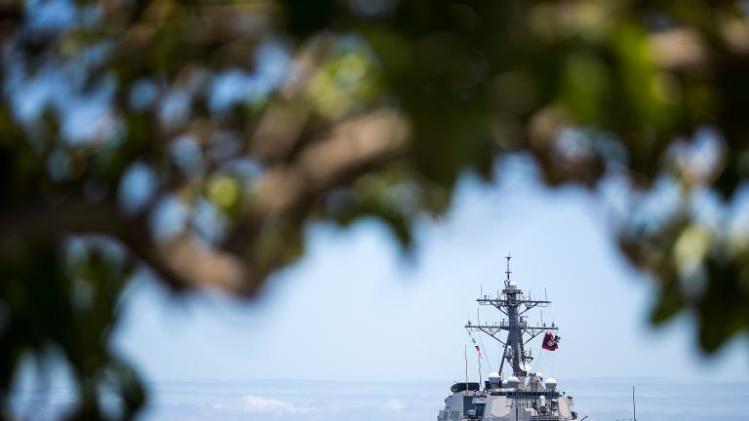China Warns Australia Not to Side with America in War

Print Article Send a Tip
by John J. Xenakis 22 Jan 2013 post a comment View Discussion
This morning's key headlines from GenerationalDynamics.com:
- China warns Australia not to side with America in case of war
- Philippines seeks U.N. arbitration over South China Sea dispute
- China increases surveillance in the South China Sea
- U.S. begins transporting French soldiers to Mali
China warns Australia not to side with America in case of war
Senior Colonel Liu Mingfu of China's National Defence University has raised the specter of a nuclear war, and warned Australia not to side with America and Japan. Liu is not an official spokesman for China, but his views are approved. Referring to the dispute between Japan and China over the Senkaku/Diaoyu islands, Liu said that China was prepared to fight "to the death":
America is the global tiger and Japan is Asia's wolf and both are now madly biting China. Of all the animals, Chinese people hate the wolf the most.
If this Japanese wolf again attacks America's Pearl Harbor or Australia's Darwin, how do you know it wouldn't receive another nuclear bomb? The world would hail if Japan receives such a blow.
I don't want to mention China here, as it is sensitive...
[Australia should play the role of a] kind-hearted lamb. Australia should never play the jackal for the tiger or dance with the wolf.
See also: "19-Jan-13 World View -- China's directive to the People's Liberation Army: Get Ready for War"
The Age (Australia) and International Business Times (Australia)
Philippines seeks U.N. arbitration over South China Sea dispute
The Philippines took a desperate legal step on Tuesday, formally notifying China that it's seeking international arbitration under the 1982 United Nations Convention on the Law of the Sea (UNCLOS). China has used its military to block Philippines' access to the Scarborough Shoal, which is part of Philippines exclusive economic zone (EEZ) under UNCLOS. China has made it clear that they are going to use their military power to take control of the entire South China Sea, including several regions that have historically belonged to other countries, following a policy similar to Hitler's "Lebensraum" policy. They've announced that they intend to begin boarding and seizing control of other countries' ships in the South China Sea. At a news conference, Philippines Foreign Secretary Albert del Rosario said:
This afternoon, the Philippines has taken the step of bringing China before an arbitral tribunal under... the 1982 United Nations Convention on the Law of the Sea (Unclos) in order to achieve a peaceful and durable solution to the dispute over the West Philippine Sea. [Since 1995, the Philippines has exhausted almost] all political and diplomatic avenues for a peaceful negotiated settlement of its maritime dispute with China.
On numerous occasions, dating back to 1995, the Philippines has been exchanging views with China to peacefully settle these disputes. [However, up until] this day, a solution is still elusive.
According to one Chinese diplomat, "We are not afraid of UNCLOS. Manila underestimates our knowledge at its peril." Manila Standard and South China Morning Post (Hong Kong)
China increases surveillance in the South China Sea
Two additional fleets of Chinese marine surveillance ships are carrying out separate patrol missions in the South China Sea. (I assume that these are the fleets that will support China's announced policy of boarding and seizing foreign ships.) China says that it will continue to carry out regular patrols in the East and South China Seas "to secure the nation's maritime rights and interests." Xinhua
U.S. begins transporting French soldiers to Mali
U.S. Air Force C-17 transport planes have begun flights from the French base in Istres, France, to Bamako, carrying French troops and equipment. 3,150 French troops will be involved in the Mali operation, code-named "Operation Serval," and the transport missions will operate for several more days, according to the U.S. military's Africa Command, which is based in Stuttgart, Germany. AP




 Reply With Quote
Reply With Quote












Bookmarks